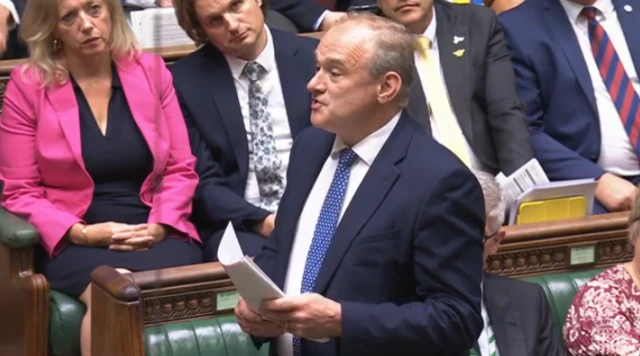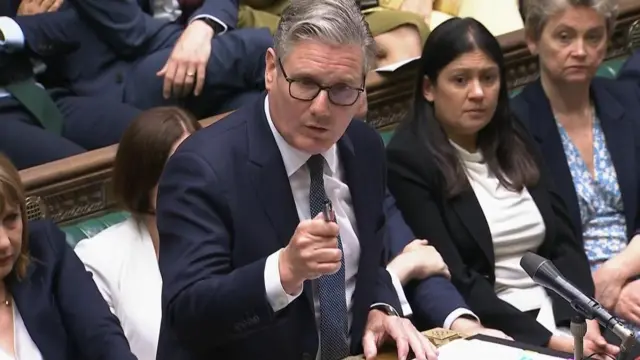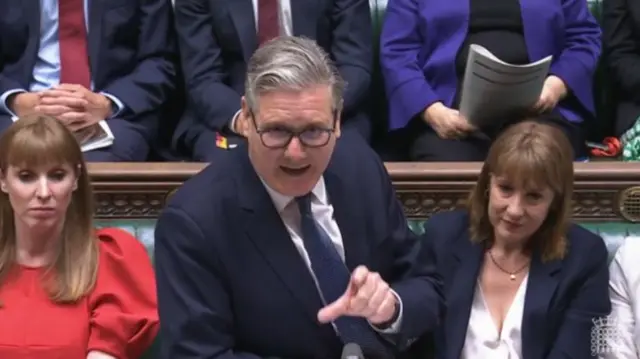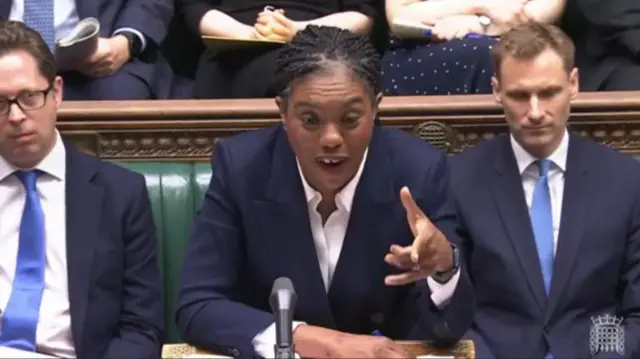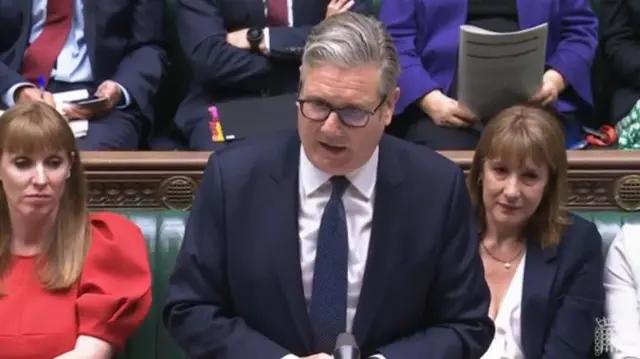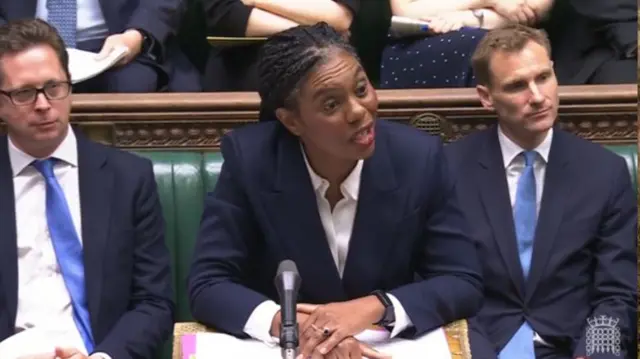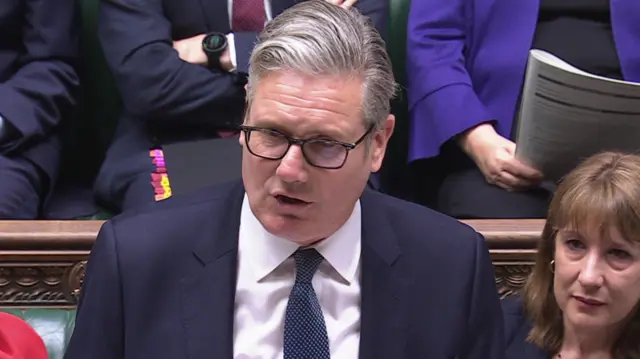Starmer's bench looks sullen behind himpublished at 12:33 BST 2 July
 Chris Mason
Chris Mason
Political editor
The prime minister early on today sought comfortable and binding ground for the Labour Party – the NHS.
Starmer said this week would mark the 77th anniversary of the health service, and tomorrow the government will set out its 10-year plan for health.
As he spoke, the sullen faces of Deputy Prime Minister Angela Rayner and in particular Chancellor Rachel Reeves – either side of Starmer – stood out.
Reeves was seen to wipe away tears. We have asked her team why this is and are yet to hear back.
Kemi Badenoch had ample opportunity to give the PM a good bashing after the last 24 hours and relished the opportunity.
Reeves appears tearful during PMQs
